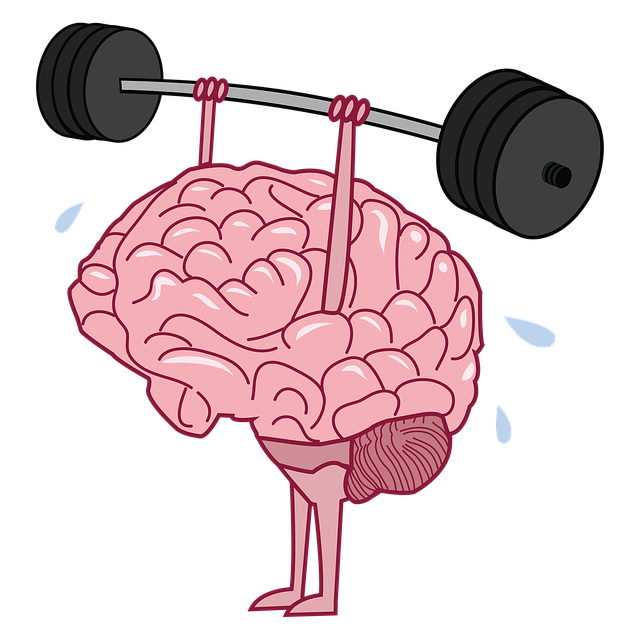In today's fast-paced world, community connection is crucial for overall wellness, especially in promoting social well-being. Group wellness initiatives, including organized mindfulness and meditation sessions, bring people together, fostering a sense of belonging and unlocking the benefits of social connections. These practices enhance mental well-being, strengthen social bonds, promote empathy, and create supportive networks, significantly improving community health and happiness. Effective mindfulness and meditation sessions empower participants to manage stress, improve focus, and cultivate inner calm through non-judgmental thought observation. Facilitators should design engaging sessions with a warm atmosphere, diverse techniques, and varied formats to maintain interest. Measuring success involves both quantitative (surveys, attendance) and qualitative (feedback, observations) assessments to understand the impact of these initiatives on community well-being.
“Group wellness initiatives are transforming communities into thriving, connected hubs. In this comprehensive guide, we explore the profound impact of community connection on overall well-being. From ‘The Power of Community Connection’ to effective ‘Mindfulness and Meditation’ techniques, we delve into strategies that foster social wellness. Learn how to design engaging group sessions, measure program success, and unlock a happier, healthier community through collective efforts. Discover the power of shared experiences and enhance your community’s resilience with evidence-based wellness programs.”
- The Power of Community Connection: Unlocking Social Wellness
- Mindfulness and Meditation: Tools for Stress Reduction and Focus
- Designing Engaging Group Sessions: Tips and Techniques
- Measuring Success: Evaluating the Impact of Community Wellness Programs
The Power of Community Connection: Unlocking Social Wellness

In today’s fast-paced world, community connection has become an essential aspect of our overall wellness. The power of collective support and shared experiences cannot be understated, especially in fostering social wellness. Group wellness initiatives play a pivotal role in bringing people together, creating a sense of belonging, and unlocking the numerous benefits of social connections. These initiatives offer a unique opportunity for individuals to engage, interact, and cultivate meaningful relationships within their communities.
Through organized mindfulness and meditation sessions, for instance, residents can find solace and calm amidst the hustle and bustle of daily life. Such practices not only enhance mental well-being but also encourage active participation in community building. By fostering an environment where people feel seen, heard, and valued, these initiatives strengthen social bonds, promote empathy, and create a supportive network that can significantly improve overall community health and happiness.
Mindfulness and Meditation: Tools for Stress Reduction and Focus

Mindfulness and meditation sessions have emerged as powerful tools within group wellness initiatives, offering participants effective strategies to manage stress and enhance mental clarity. These practices encourage individuals to focus on the present moment, cultivating a sense of calm and grounding. During group mindfulness exercises, members learn to observe their thoughts and emotions without judgment, fostering an environment of open and honest connection with themselves and others.
Regular meditation sessions within community settings can significantly improve concentration and overall well-being. It provides a shared experience where participants can bond over their collective efforts to reduce stress and cultivate inner peace. Such initiatives often incorporate guided meditations tailored to specific themes or challenges, enabling individuals to develop coping mechanisms and build resilience in a supportive network.
Designing Engaging Group Sessions: Tips and Techniques

Designing engaging group wellness sessions, especially focused on mindfulness and meditation, requires a blend of creativity and structure. Facilitators should begin by creating a welcoming and inclusive environment where participants feel comfortable sharing their experiences. This can involve setting clear intentions for each session, establishing ground rules, and incorporating icebreaker activities to foster camaraderie.
To keep the sessions interesting, incorporate a variety of techniques such as guided visualizations, breathwork exercises, and gentle movement practices like yoga or tai chi. Regularly changing up the format and themes also helps maintain engagement. Encourage active participation by asking for feedback, inviting discussions, and providing opportunities for individuals to share their personal journeys with mindfulness and meditation.
Measuring Success: Evaluating the Impact of Community Wellness Programs

Measuring success is a vital aspect of any community wellness initiative, as it helps to understand the impact and effectiveness of programs designed to foster connection and improve overall well-being. Evaluating the outcomes of mindfulness and meditation sessions, for instance, can provide valuable insights into their long-term benefits. Quantitative methods such as surveys and attendance records offer tangible data on participant engagement and satisfaction levels.
Qualitative assessments, including feedback from participants and observations by facilitators, add depth to this evaluation process. These approaches help identify the emotional and psychological changes within the community, such as increased feelings of unity, reduced stress levels, or enhanced coping mechanisms. By combining both quantitative and qualitative methods, organizers can gain a comprehensive understanding of how wellness programs contribute to building stronger, more connected communities.
Community connection through group wellness initiatives is a powerful tool for enhancing social wellness. By incorporating mindfulness and meditation sessions, these programs offer effective stress reduction techniques and improved focus. Through thoughtful session design and clear measurement of success, community wellness programs can foster meaningful connections, create a supportive environment, and ultimately enhance the overall well-being of participants.
